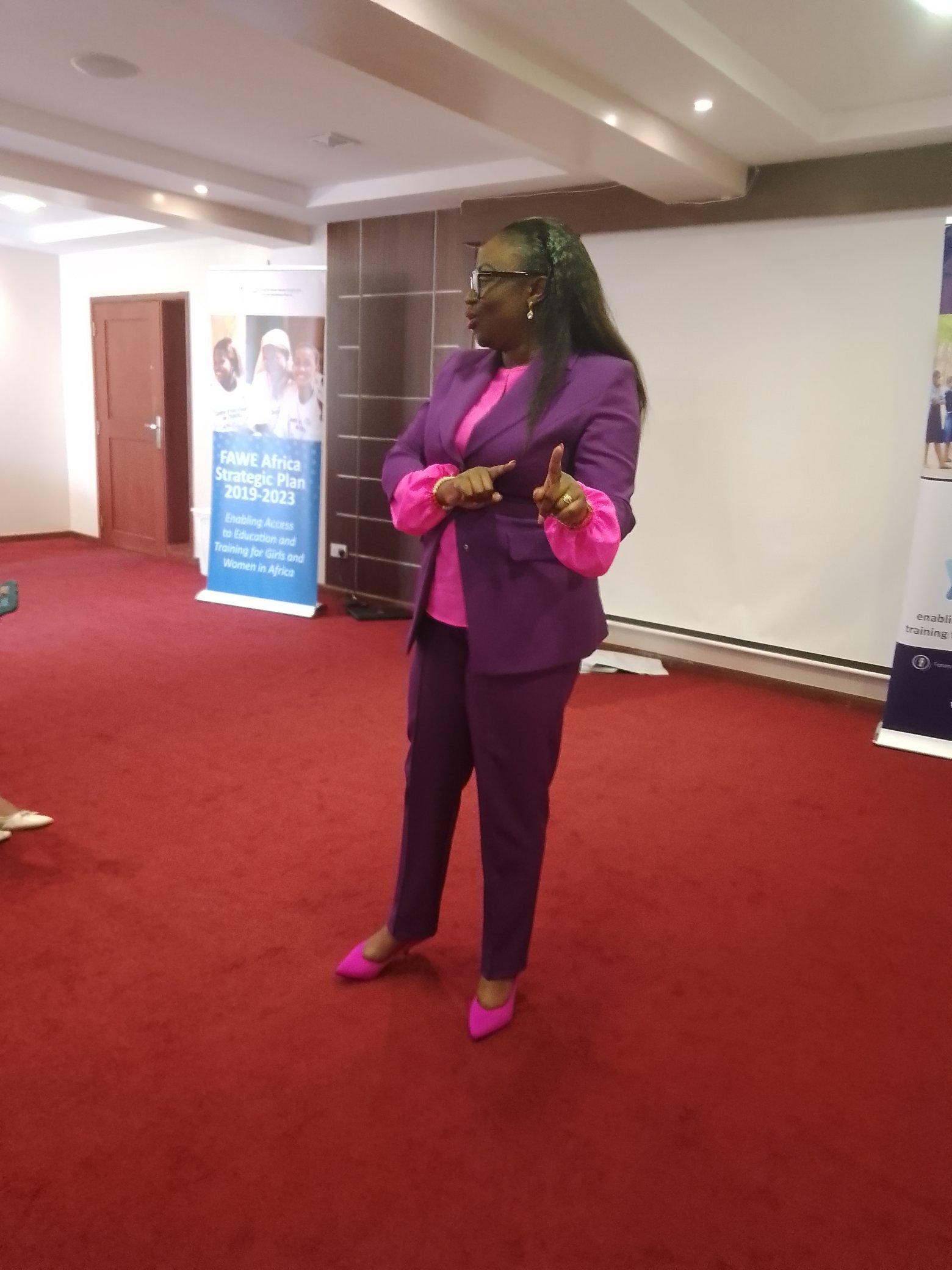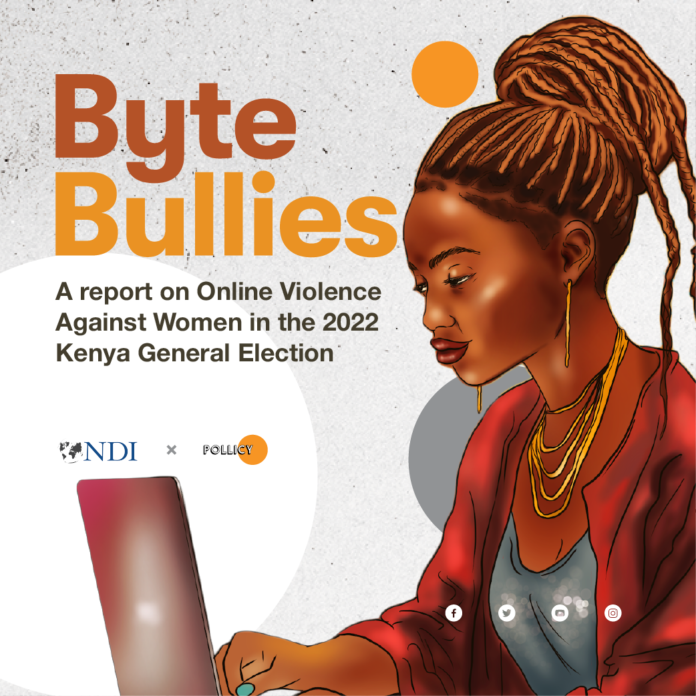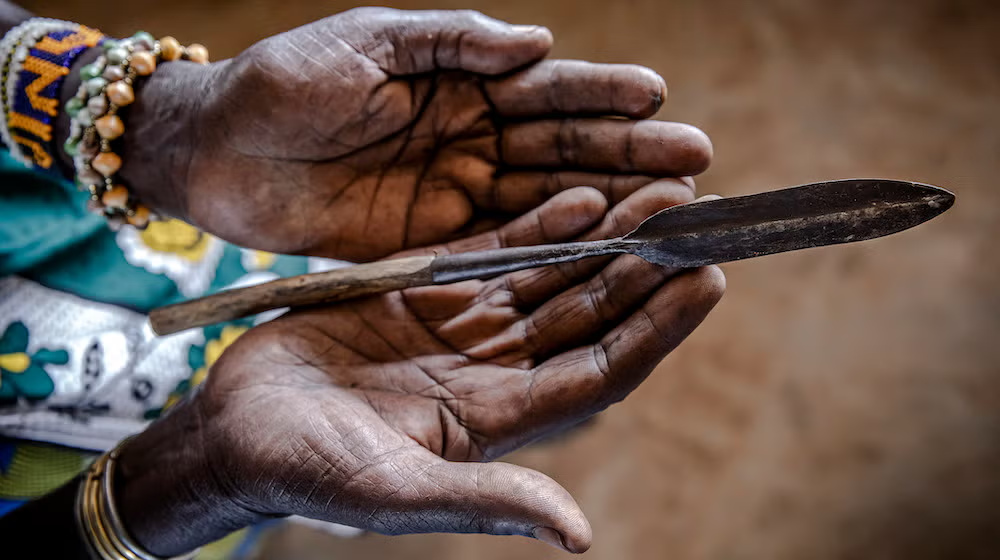By Mary Mwendwa
Nairobi, Kenya: Women politicians experienced the brunt of online harassment during Kenya’s 2022 general election, a report has revealed. The report, titled “BYTE BULLIES; A Report on Online Violence Against Women- Politicians in the 2022 Kenya General Election ” has uncovered the grave reality of how online violence and hate speech were directed at women politicians during the last election in Kenya.
A case of Gloria Orwoba, a Kenyan politician who has served as a nominated Senator representing women in the Senate of Kenya since 2022. Recently during a journalist’s training on how to report on women politicians, she confirmed how online violence affected her during the campaign period. She narrated how she was trolled and abused by people both known to her and those she did not know because she was contesting for a parliamentary seat in her home area.“ The online harassment made me leave social media for some time because it became too much for me to handle, however with time I have learned how to handle it, I, still using social media and I know of many women politicians who suffered the same fate as me.” Orwoba said.
Orwoba is one of the many women politicians who experienced online violence during the 2022 elections. Many other women politicians were victims of online harassment which saw no offender taken to court and justice served.

The comprehensive study found that the of social media platforms for engaging with voters and constituents of women politicians remains low in Kenya.
The study noted that at least 93 percent of the accounts belonging to men candidates were used at least once during 2022 on Facebook compared to 80 percent of the women politicians’ accounts.
Further, on Twitter, 49 percent of accounts belonging to women candidates had less than 5 tweets a month during the campaign period in comparison to 44 percent of those belonging to men.
Another disturbing revelation was that online violence was more prevalent among women candidates than men, especially on Twitter. The study highlighted that 2 out of 5 Twitter accounts belonging to women candidates experienced sexual harassment. Similarly, attacks against Kenyan women politicians were often focused on personal traits or appearance and were sexualized in nature as opposed to their political platform or qualifications.
A more disturbing finding was that traditional social roles and cultural barriers restricted women’s political involvement, leading to increased instances of online violence. Factors such as age and party affiliation also made women more vulnerable to harassment and abuse
Kenya has enacted the Computer Misuse and Cybercrimes Act of 2018 which seeks to address technology-facilitated gender-based violence including the sharing of intimate images, cyberbullying, and online harassment. However, this law has been slow in terms of implementation, especially for women politicians who bear the biggest brunt of online harassment. Inadequate implementation of the law remains a challenge for survivors seeking justice.
Similarly, the UN declaration on the elimination of all forms of violence against women remains a global commitment to which Kenya is a signatory.
Irene Mwendwa Director of Strategic Initiatives at Pollicy, emphasized the significance of this report, stating, “Our Byte Bullies Report reveals the stark reality faced by women politicians in Kenya during the 2022 General Election. The pervasive online violence and hate speech against women candidates have far-reaching consequences, undermining their ability to engage effectively with voters and participate fully in the democratic process. It is imperative that we address these challenges head-on and create an environment that fosters equal opportunities for women in politics.”
The study also shed light on the challenges faced by women candidates and highlighted the urgent need for systemic change to foster a safer and more inclusive political landscape.
One of the key recommendations this study came up with was for Kenya’s Kwanza government, which is currently ruling in Kenya under the leadership of President William Ruto is to leave room to explore the room for digital literacy, legal policies, and frameworks that promote proper platform use and protect women from online abuse.
Also to promote women politician participation online by revising the Electoral Code of Conduct, the Political Parties Act 2011, and the Political Parties Disputes Tribunal.
Specifically, the Tribunal’s mandate has to expand to hear disputes arising from online use. In the Political Parties Act and its Code of Conduct, the definition of online violence must be included and clearly outline the recourse and applicable measures.
The study called upon the education curriculum to address safe online engagement as much as it addresses different forms of social protection for Kenyans since online violence has roots in the offline world. Women running for political office should receive substantial support through digital safety training.
Additionally, more state and non-state actors need to prioritize monitoring and addressing OVAW-P in future election cycles. The authorities need to ensure that legal frameworks recognize online harassment and that law enforcers and public prosecutors are trained to deal with cases of online harassment.
It is also important that women file cases of online harassment with the authorities to enable prosecution. Respondents noted that only a handful of organizations, such as UN Women, FIDA Kenya, and KEWOPA, addressed the issue.
29 women politicians were interviewed during this study where 268 social media accounts were monitored, while 128,604 Twitter replies were collected and 5,119 Facebook comments were collected respectively.
The report was produced in collaboration with the National Democratic Institute (NDI), which works to support the consolidation of democracy worldwide. NDI’s Director for Gender, Women, and Democracy, Sandra Pepera said: “Pollicy influences global standards on the digital space through the quality of its tracking and analysis – and like NDI – by working through multi-sectoral alliances. The findings in the Byte Bullies report provide essential guidance for implementing effective interventions that improve the integrity of the information space for all of us and NDI is proud to be associated with this report.”














